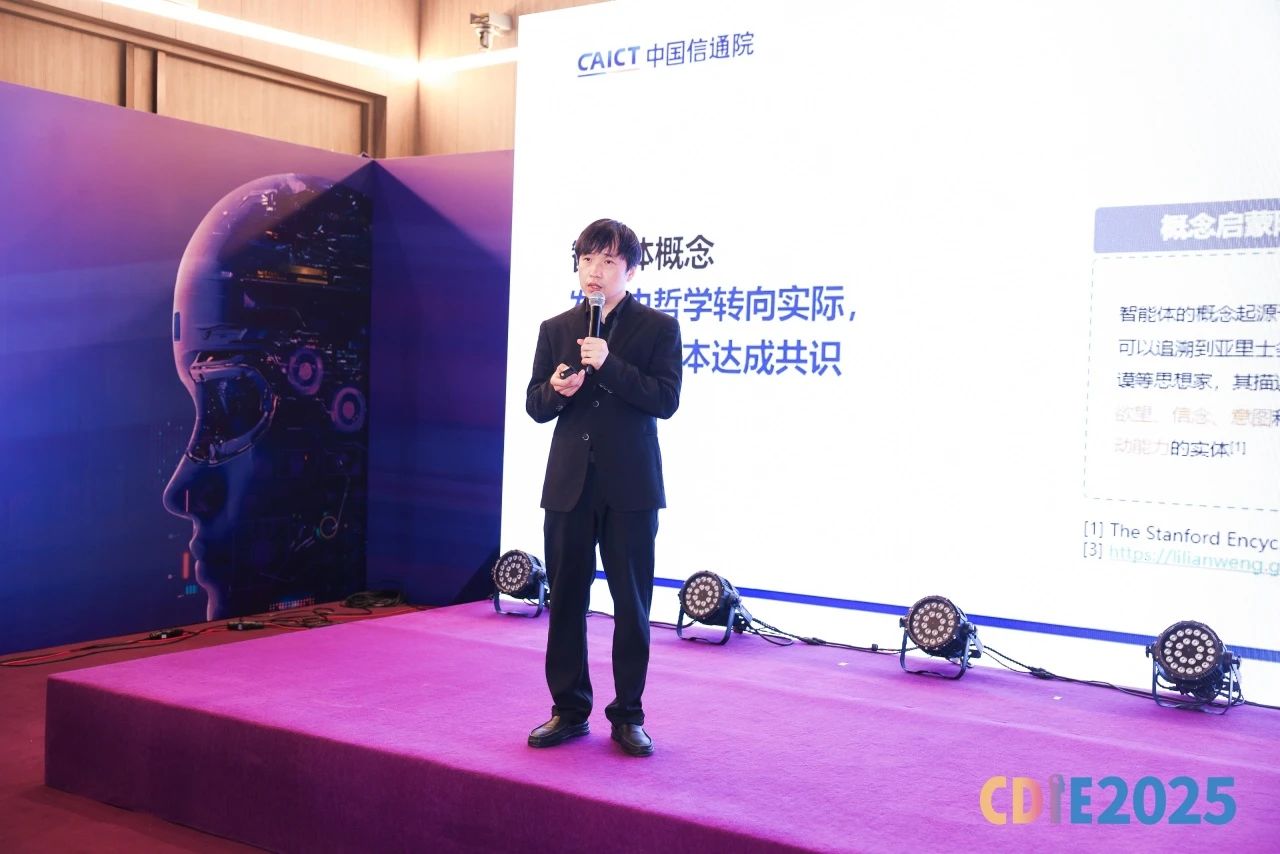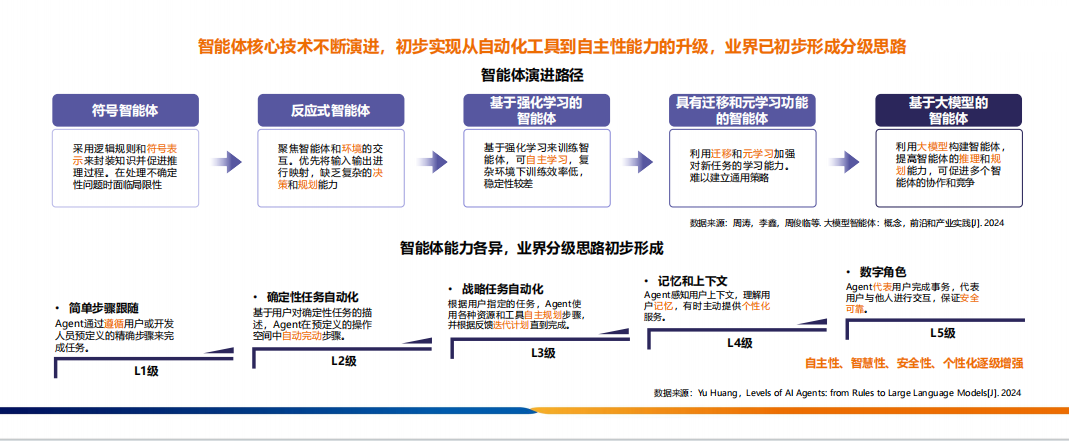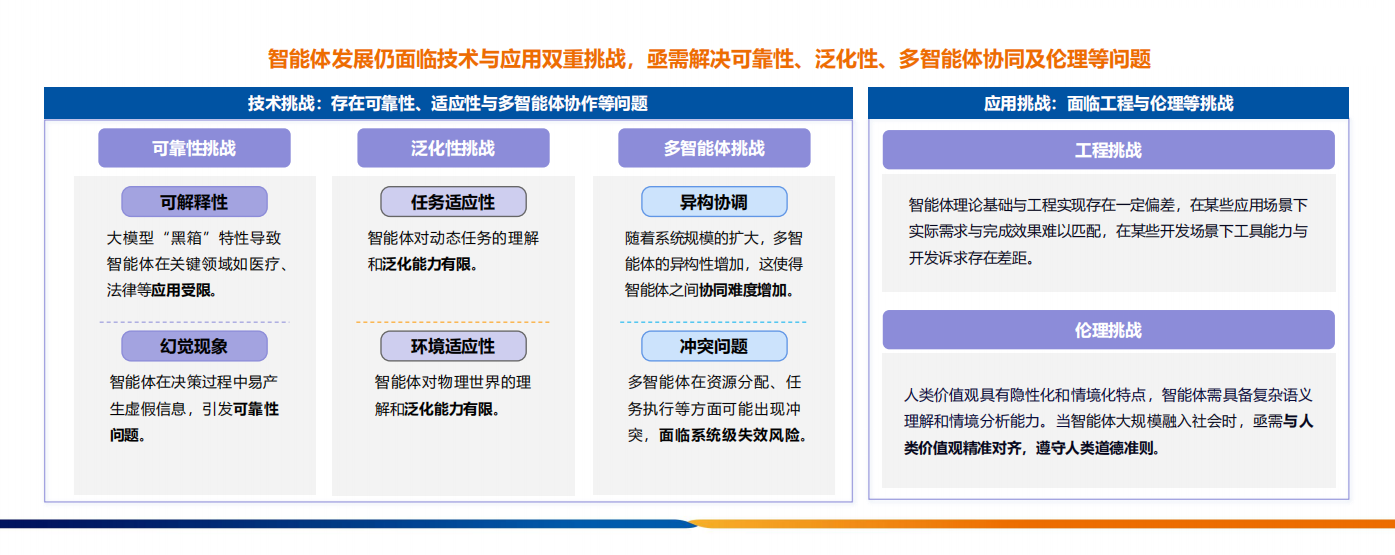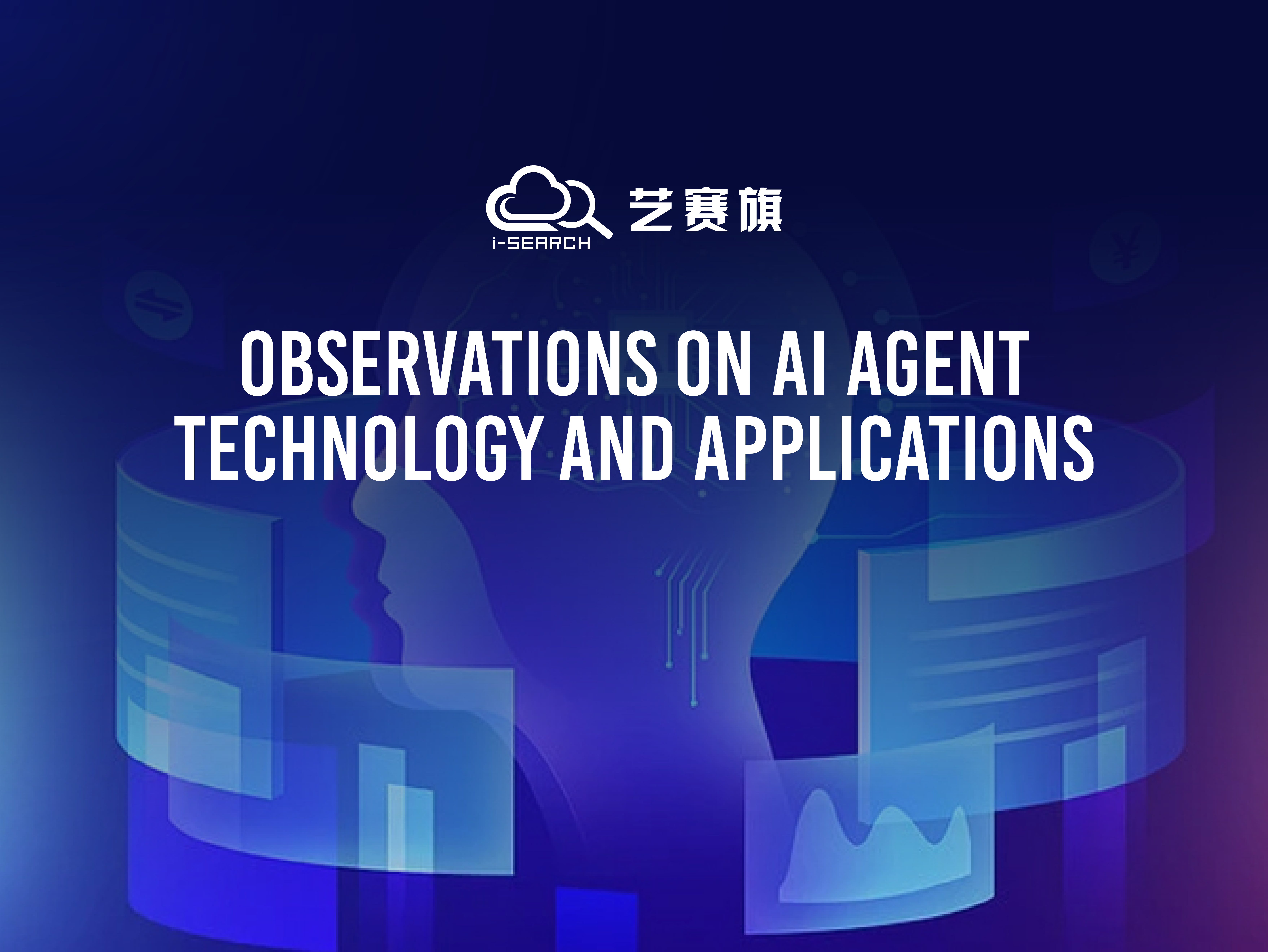At iSearch's recent enterprise intelligent agent spring product launch themed "AI Without Boundaries · Intelligent Future", we were honored to host Mr. Dong Xiaofei, Deputy Director of the Platform and Engineering Department at the Artificial Intelligence Research Center of China Academy of Information and Communications Technology (CAICT), who delivered an in-depth presentation on intelligent agent technologies and applications.

Mr. Dong's presentation systematically covered:
1. Conceptual Evolution: Tracing philosophical origins through developmental milestones to contemporary maturity, intelligent agents are now broadly defined as cognitive systems capable of environmental perception, instruction comprehension, decision planning, and task execution. This conceptual expansion—from Alan Turing's "highly intelligent organism" to entities demonstrating autonomy, reactivity, proactivity, and social capabilities—reflects continuous technological advancement.
2. Historical Development: The technology has progressed through symbolic agents, reactive agents, and reinforcement learning-based agents. Recent large language model (LLM) innovations have established model-based agents as the mainstream, transitioning from automated tools to autonomous systems. iSearch's newly released enterprise solutions exemplify this trend:

3. Key Implementation Frameworks:
4. Application Scenarios: Demonstrated effectiveness in:
5. Future Trends & Challenges:

This comprehensive analysis by Mr. Dong illuminates intelligent agents' transformative potential as a core AI discipline, driving digital transformation across industries through secure, efficient, and trustworthy solutions.

Mr. Dong's presentation systematically covered:
1. Conceptual Evolution: Tracing philosophical origins through developmental milestones to contemporary maturity, intelligent agents are now broadly defined as cognitive systems capable of environmental perception, instruction comprehension, decision planning, and task execution. This conceptual expansion—from Alan Turing's "highly intelligent organism" to entities demonstrating autonomy, reactivity, proactivity, and social capabilities—reflects continuous technological advancement.
2. Historical Development: The technology has progressed through symbolic agents, reactive agents, and reinforcement learning-based agents. Recent large language model (LLM) innovations have established model-based agents as the mainstream, transitioning from automated tools to autonomous systems. iSearch's newly released enterprise solutions exemplify this trend:
- Qiqi Assistant 2.0: Integrates short-term memory with long-term knowledge bases, enabling multi-turn dialogues, intelligent writing, and dynamic decision-making to enhance customer service and collaborative efficiency.
- Automation Magician: Processes natural language inputs to parse requirements, generate workflow logic, and orchestrate cross-system RPA operations.
- AI Center Platform: Offers low-code development environments and pretrained model libraries to reduce technical barriers for enterprise-specific agent deployment.

3. Key Implementation Frameworks:
- Development Tools: Prebuilt components, standardized architectures, and no-code/low-code platforms with dialogue management and semantic parsing capabilities significantly lower development thresholds.
- Workflow Design: Task decomposition through iterative planning enhances execution quality and efficiency.
- Model Collaboration: Combining LLMs' generalization strengths with small models' efficiency improves task-handling reliability.
- Multi-Agent Systems: Address limitations of serial processing by enabling parallel task execution with continuous feedback.
4. Application Scenarios: Demonstrated effectiveness in:
- Office automation (spreadsheet processing, meeting transcription)
- Customer service enhancement
- Financial and governmental operations
- Case Study: iSearch's bulk commodity procurement agent autonomously analyzes global market data, generates price fluctuation alerts, and provides procurement recommendations.
5. Future Trends & Challenges:

- Opportunities: Scaling Law and multimodal LLMs will improve output quality and physical world interaction.
- Technical Challenges: Reliability (hallucination risks), generalization (dynamic task adaptation), and multi-agent coordination.
- Ethical Considerations: Alignment with human values and moral principles remains critical.
This comprehensive analysis by Mr. Dong illuminates intelligent agents' transformative potential as a core AI discipline, driving digital transformation across industries through secure, efficient, and trustworthy solutions.

 企业平台
企业平台 发现评估
发现评估 自动化
自动化 行业解决方案
行业解决方案 业务解决方案
业务解决方案 合作伙伴
合作伙伴 生态联盟
生态联盟 咨询服务
咨询服务 培训服务
培训服务 交流社区
交流社区 客户成功
客户成功 产品文档
产品文档
 公司介绍
公司介绍 新闻列表
新闻列表 联系我们
联系我们 加入我们
加入我们

